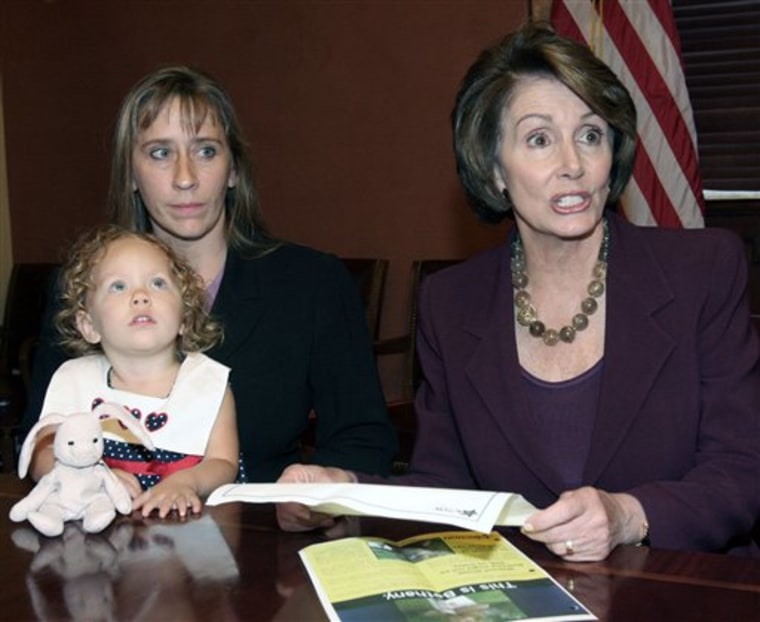House Democrats failed Thursday to override President Bush's veto of their pre-election year effort to expand a popular government health insurance program to cover 10 million children.
The bill had bipartisan support but the 273-156 roll call was nine votes short of the two-thirds majority supporters needed to enact the bill into law despite Bush's objections. The bill had passed the Senate with a bigger than two-thirds majority.
The proposed $35 billion spending increase over five years for the State Children's Health Insurance Program would expand it from the 6.6 million people -- most of them children -- currently covered. The program now costs about $5 billion a year.
"These are the most vulnerable people in our society," Rep. John Dingell, D-Mich., said of the children who would be added to the program.
Republicans said they support renewing the program. But they also said states should focus on poor children first and enroll at least 90 percent of those currently eligible before using federal funds to cover children in families with higher incomes.
Bush, anticipating that his veto will stand, has assigned three top advisers to try to negotiate a new deal with Congress after Thursday's vote. The current program expires Nov. 16.
The president said his veto gives him a chance to weigh in on the future of the State Children's Health Insurance Program.
"Sometimes the legislative branch wants to go on without the president, pass pieces of legislation and the president can then use the veto to make sure he's a part of the process," Bush said.
Difference is $30 billion
Leading the discussions for his administration are Mike Leavitt, the health and human services secretary; Al Hubbard, director of the National Economic Council; and Jim Nussle, the White House budget chief.
But supporters of the bill passed last month by Congress say they already have compromised. The House originally had proposed a $50 billion increase over five years.
The bill is bipartisan and the Senate has shown it could override a veto. Senate Majority Leader Harry Reid, D-Nev., has replied with an emphatic "no" when asked if he would seek a compromise with the administration.
Both the House and Senate have to override a veto for a bill to become law over a president's objection.
Through the program, the government and the states subsidize the cost of health coverage for families that earn too much to qualify for Medicaid but not enough to afford private insurance.
Bush has recommended a $5 billion increase, bringing total spending over five years to $30 billion - half the level called for in the bill that he vetoed.
The president has said the measure that passed Congress encourages families with higher incomes to drop private coverage so that they can get their insurance paid for by the government.
Dozens of advocacy groups have endorsed the bill, which would increase enrollment from about 6.6 million now to about 10 million by 2012.
Proponents emphasized that the program still would focus on low-income families. Rep. John Dingell, D-Mich., said more than 90 percent of families covered have incomes are below $41,300 for a family of four. That is the range that the program was originally designed to help.
"There will be no wealthy people covered," Dingell said.
Some public opinion polls indicate support for expanding the program. Sixty-one percent said Congress should override Bush's veto of a bill expanding the program, according to a CNN-Opinion Research Corp. poll released Wednesday. Blacks were more likely than whites to favor overriding Bush's veto.
